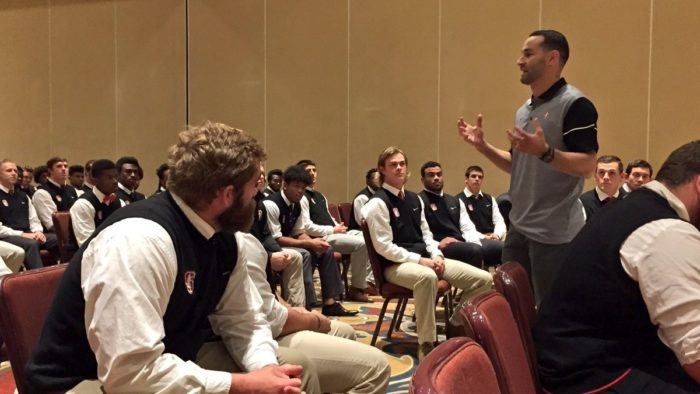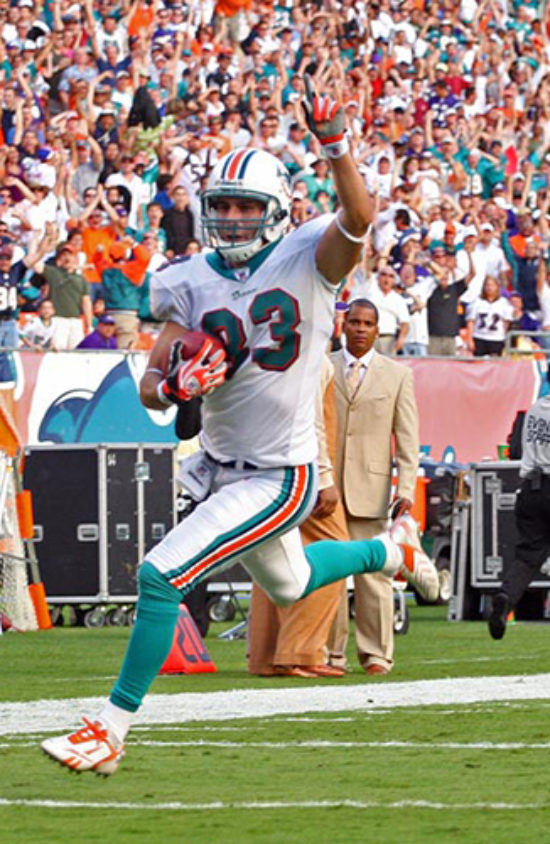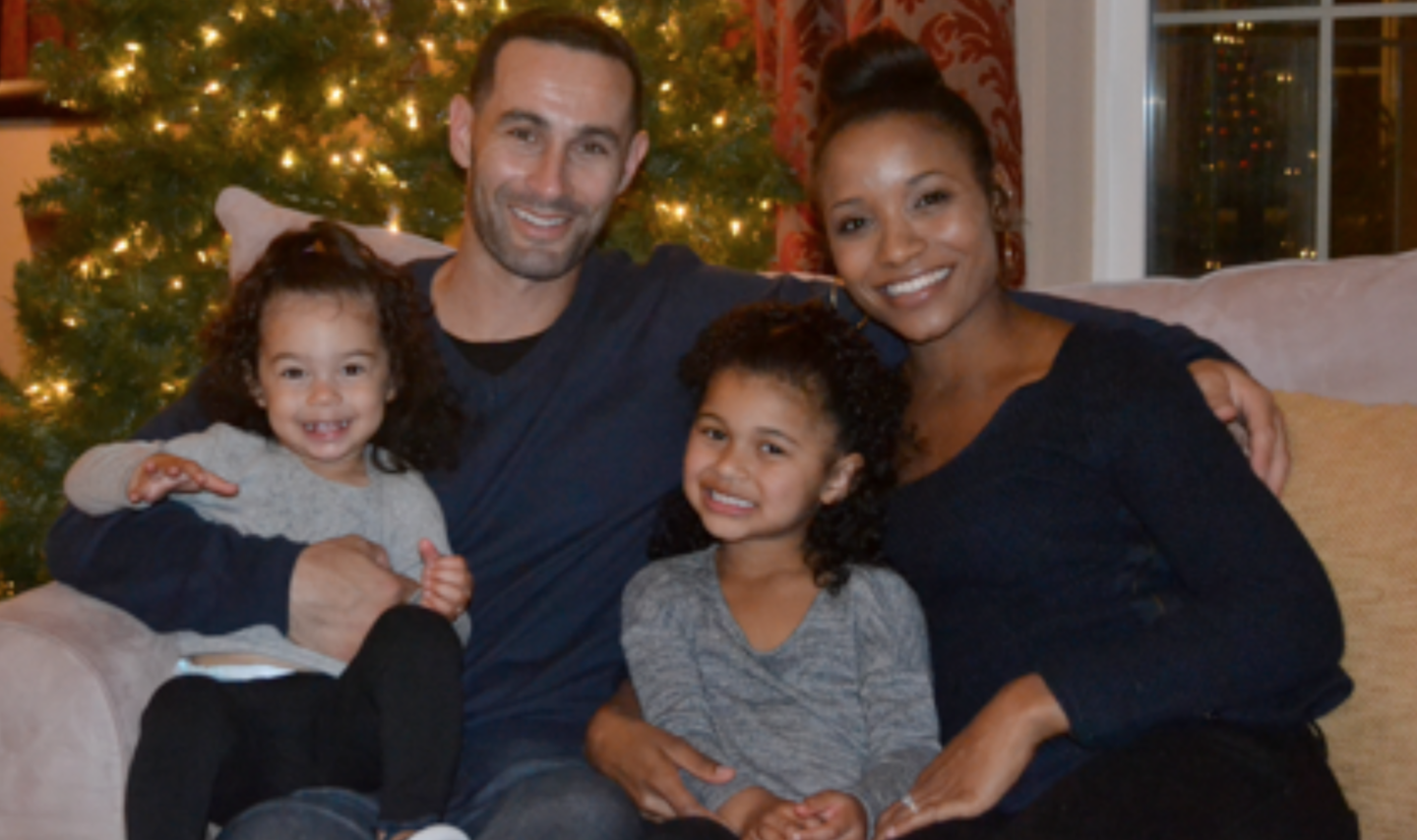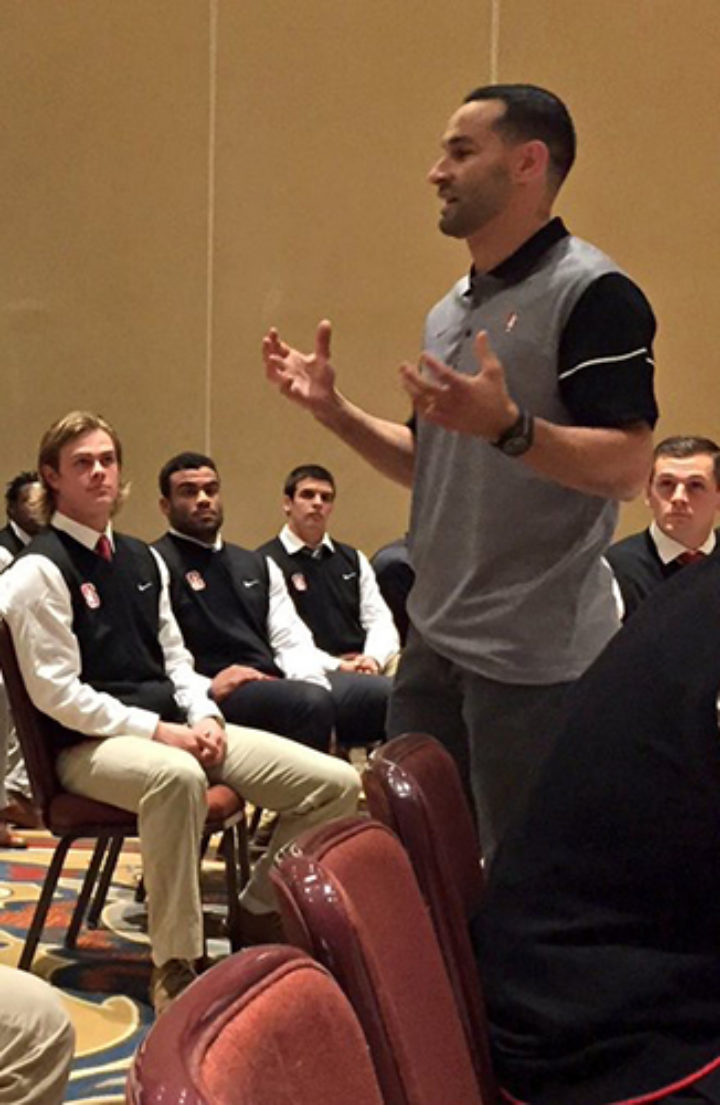I didn’t really have a direction, so the simple answer would be to find a direction quicker. The last time I got cut was around Thanksgiving time and college applications were due before the new year, so I really jumped on that quickly. Knowing that it wasn’t a step that I had to take (if I were to get accepted into the school) but it was an option. So, it was an easy step for me to take because it wasn’t a commitment, it was more of an idea. And it also gave me a year off before actually attending school. So, although I had a plan, I still had ten, eleven months off to focus on myself and my family before actually changing directions.

Greg Camarillo is a former NFL WR who played eight seasons with the San Diego Chargers, Miami Dolphins, Minnesota Vikings and New Orleans Saints between 2005-2012. After the game he returned to school for two years and is now the Coordinator of Student-Athlete Development at the University of San Diego.

I talked to a lot of former teammates, guys that had stopped playing to see what they were up to, to see what their future plans were, etc.
I discussed it with my family. Luckily, I was married at the time, so a lot of the direction and encouragement came from home. The people that had been around me my whole life, just asking them what they were up to and what they thought would be a good move for me. You’re spending a lot more time at home. You’re used to waking up six in the morning, leaving, spending all day at work, but instead, you’re waking up in the morning and you have all day together. So, the communication is key there in finding the right path that it works for both of you. You know, you obviously can’t just fulfill your own interest if you’re married. You have to have a mutual interest in something. So, having that communication and finding that goal together is important.

“ You’re spending a lot more time at home. You’re used to waking up six in the morning, leaving, spending all day at work, but instead, you’re waking up in the morning and you have all day together. ”
I work as the Coordinator of Student-Athlete Development at the University of San Diego. My job consists of being an academic counselor for five teams (Men's and Women's Rowing, Softball, Golf and Men's Soccer), creating professional and leadership development programs/activities for all student-athletes and teaching a leadership class for freshmen student-athletes.
I really love teaching – not just because students call me 'Professor,' which I'm definitely not qualified to be – but because it provides the platform to connect with student-athletes and foster their growth during their first semester on campus.
“ It provides the platform to connect with student-athletes and foster their growth during their first semester on campus. ”
A typical day for me is a combo of raising kids, working and working out. I work part-time so I usually start the day bright and early when my munchkins come parading into the bedroom. I'll spend a couple hours with my wife and kids as we get ready for the day then I'll head off to work.
Work usually consists of a combo of meeting with student-athletes, planning development events/activities for my students and communicating with coaches/admin about the teams that I am responsible for advising.
After work, I get to return home to my crew for several more hours of playtime, dinner and fun. When the little ones hit the bed, I'll try to get in a quick workout before hanging with my wife as we try to enjoy the final hours of the day in the calm that comes with sleeping children. Then, a few minutes of Netflixing boring shows to put me to sleep. Next thing you know, the kiddo parade begins again.
It's just a resource that was there. You figure that the NFLPA and the NFL are putting enough time and money into something for the players that it has to be worthwhile, and there was nothing negative that could come from it. I’m obviously not going to be a worse person for taking advantage of the resources so I figured, "Why not?" And then, step by step, I just learned that it was a valuable resource, that it was helping me, so I continued to take advantage of each resource that was offered.
“ Step by step, I just learned that it was a valuable resource, that it was helping me, so I continued to take advantage of each resource that was offered. ”

The Trust has provided support and guidance, and helped me find direction. It’s here for you and it’s catered to you. You know, they obviously have standard resources, but you use what you want, and you’re not pressured to use anything that you don’t want to use. So, you may as well give it a shot. See if it works.
It encouraged me to go to school. Knowing that I was going to be spending two years in school without an income, it would’ve changed my decision... Knowing that not only am I not making money, but I’m spending money. So to be able to go to school for free and to use that as a buffer from playing to finding a career has really helped me, and has given me somewhere to focus energy. I feel like I’ve grown.
The application process is generally simple. From my perspective, it’s just to make sure you’re serious about school and that you have a plan, which you should if you’re pursuing school. From there, they take care of the payment. They do it before the semester as opposed to other sources that pay after you’ve gotten grades and you have to come up with the money upfront. So, it’s nice to get a simple application done and then not have to worry about tuition, and just focus on school.
So I have an atypical experience with AthLife. I was partnered with Maria as my advisor, and our first conversation was about where I wanted to go with my career. I discussed that I was volunteering as a mentor in the athletic department at San Diego State where Maria actually worked, and even had the career that I was pursuing. So, she was able to give me hands-on, personal advice, and her perspective was really helpful. I’m sure that won’t happen for everybody that signs up, but it’s just nice having an unbiased person to talk to about finding that career. They don’t have any interests saying, “well maybe you should make more money” or “maybe you should head down this career”. They listen to you, they find out what you want, and then they help you achieve that.
It was awesome! As a player, when you visit a doctor you’re either trying to hide an injury or you’re trying to overplay injuries. This was the first time I could sit down with a doctor and really just express my concerns in an unbiased format. The doctors are looking out for our needs as people, not as athletes. So, it was the first time I was able to really just say what’s bothering me, tell it straight how my health is affecting my life, and then get an unbiased opinion back. It was all so huge.
“ As a player, when you visit a doctor you’re either trying to hide an injury or you’re trying to overplay injuries. This was the first time I could sit down with a doctor and really just express my concerns in an unbiased format. ”
I felt like I was having memory problems, hearing problems, mobility problems, and then to get actual assessments so I could tell where I was, it was stress-relieving actually... To know that a lot of my memory problems are just from not paying attention and not so much actual actual brain problems from playing football. So, it was really nice to just get an unbiased opinion and speak to professionals about my brain, about my body and about my mental health. It was very helpful.
There were things that I didn’t need to worry about, my MRIs came back generally positive as far as my brain which was a huge stress relief. But I was also able to point out the mobility issues that were affecting my life. So my back is hurting this way, my knees are hurting this way, and then meet with a physical therapist. They give you a plan as to how to mitigate those problems so your life is easier and more enjoyable, and also help you not focus so much energy on "my knee is hurting", but focus on how to make your knee feel better.
My single proudest moment in football was during my fourth season when my former team, SD Chargers, came to Miami for game. I was cut from San Diego in 2007 after spending two years as a backup receiver and special teams player. I never had a catch as a receiver in SD but, in Miami, I became a starting receiver.
It was a great feeling to play as a starter against my old team and my friends and score an important TD. I have a framed newspaper article in my office that has a picture of me triumphantly leaving the field that day with my Charger buddies hanging their heads in defeat. That was awesome!
My proudest moments outside of football are the seemingly trivial moments during the day that bring a huge smile to my face - when I see my wife cuddled up on the couch reading books to my two little girls, when my oldest daughter shows empathy for her sister and helps her out, when my children get super excited about spending time with their grandparents.

“ My proudest moments outside of football are the seemingly trivial moments during the day that bring a huge smile to my face. ”
In a nutshell, these moments represent that I'm doing something right, that I'm incredibly lucky to have the family that I have and that life is good. They provide small moments of fulfillment that can't be found anywhere else.
The Trust is here to support you.
Ready to learn how?
Related Spotlights
Montee Ball
After the game ended, Montee Ball found purpose in presence, recovery, and hope.
Kris Wilson
From NFL star to Emmy-winning storyteller, Kris Wilson turns grit into film magic.
Ryan Kuehl
From NFL grind to life-changing innovation - Ryan Kuehl's turning purpose into impact.